‘We Are Developing Technologies to Support People and Strengthen the Intellect’
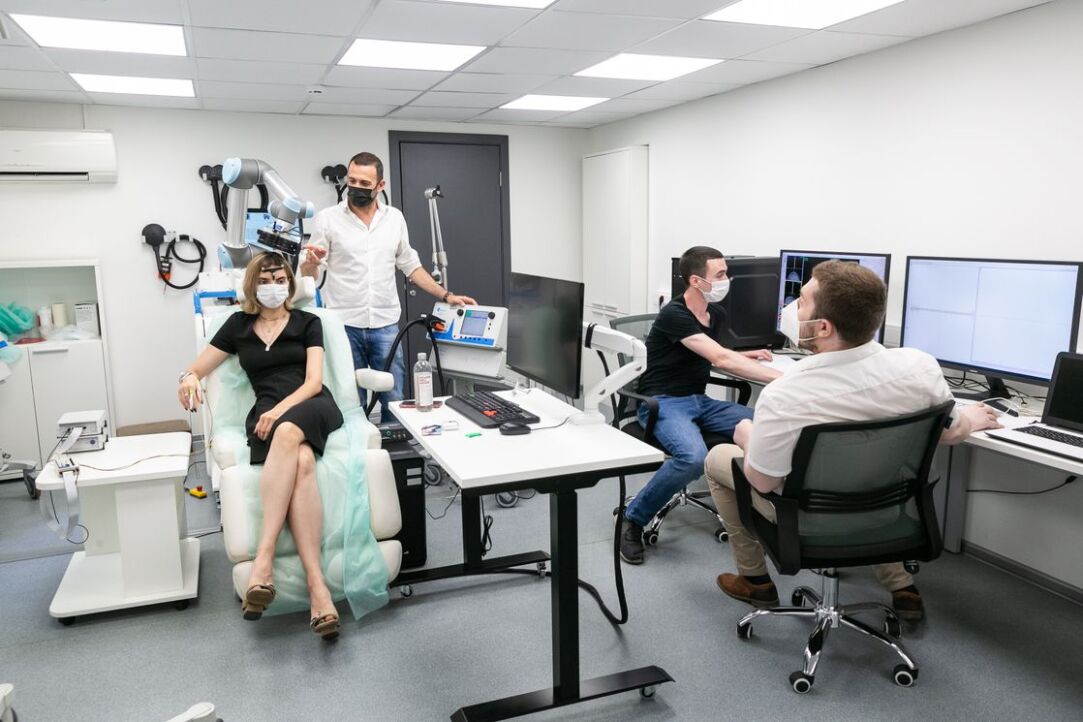
HSE News Service spoke to Director of the Institute of Cognitive Neurosciences, Head of the Centre for Cognition and Decision Making at HSE University, Anna Shestakova about the achievements and goals of the new HSE University’s strategic project ‘Human Brain Resilience: Neurocognitive Technologies for Adaptation, Learning, Development, and Rehabilitation in a Changing Environment’.
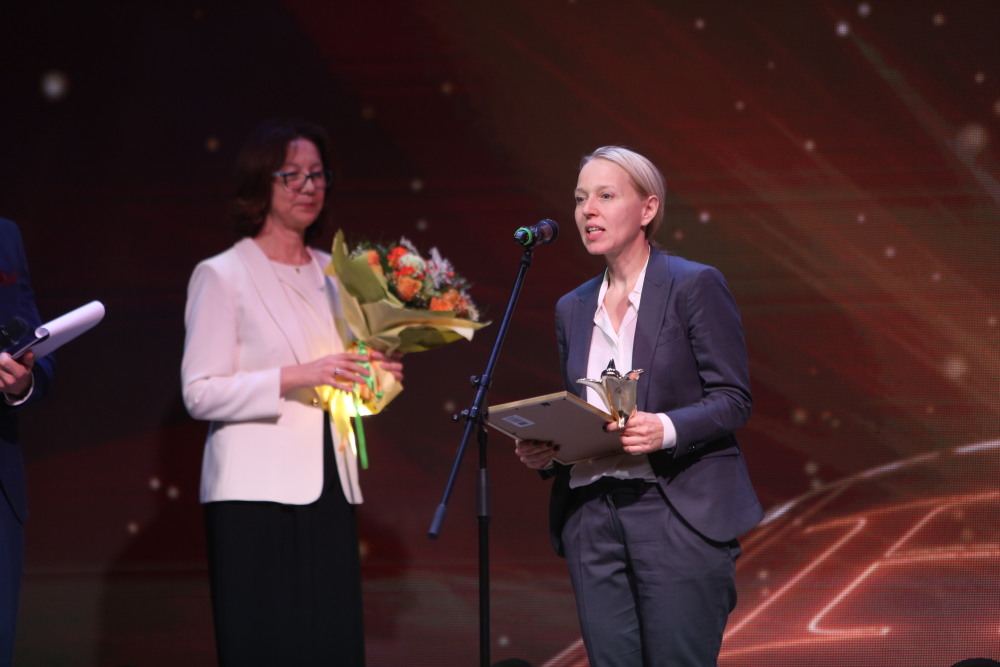
— Please tell us how the project idea came about, who initiated it, and how the team was formed.
— It was launched in the spring of this year, and was preceded by a great deal of work. We, like all divisions, participated in the initial competition for strategic projects. Taking into account the growing interest in the achievements of the brain sciences and the importance of developing new neurotechnologies, together with the Centre for Language and Brain, the Faculty of Computer Science, and the Faculty of Biology and Biotechnology, as well as partner laboratories at HSE University in St. Petersburg, Nizhny Novgorod, and Perm, we began to form a multidisciplinary project with the apposite name of ‘The Resilient Brain’.
The Institute for Cognitive Neurosciences (ICN) and the Centre for Language and Brain (CNB) are unique scientific divisions demonstrating outstanding world-class results both in the field of studying the neurobiological foundations of brain activity and in the field of diagnosis and rehabilitation of cognitive impairments and disorders.
We study the brain mechanisms of decision-making, memory, attention, speech, body-brain interaction, and cognitive reserve; we are engaged in the neuromodelling of brain processes, creating algorithms for artificial and extended natural intelligence for a wide range of cognitive tasks, developing brain signal decoding programmes and multimodal neuroimaging, neurofeedback, speech diagnostics neurotechnologies, stimulation-free preoperative mapping, and much more.
Psychologists, linguists, mathematicians, physicists and engineers, doctors and biologists—together we are developing neurotechnologies using augmented intelligence aimed at improving the quality of human life and expanding cognitive functions.
— What are the project goals and objectives?
— There are three of them: fundamental, applied and educational.
Scientific discoveries about the functioning of the human brain, as well as neurotechnologies developed as a result of these advances, will be significant for many priority areas. The concepts and tools developed can be used to respond to the key challenges of modern reality: the need for rapid adaptation and learning in a changing situation, population aging, and an increase in the number of neuropsychiatric diseases. The biomedical tools we develop can be implemented in various areas of healthcare and improve its manufacturability based on the principles of a personalised approach. The resulting computational solutions based on the work of the human brain will be able to advance research in the field of artificial and extended natural intelligence.
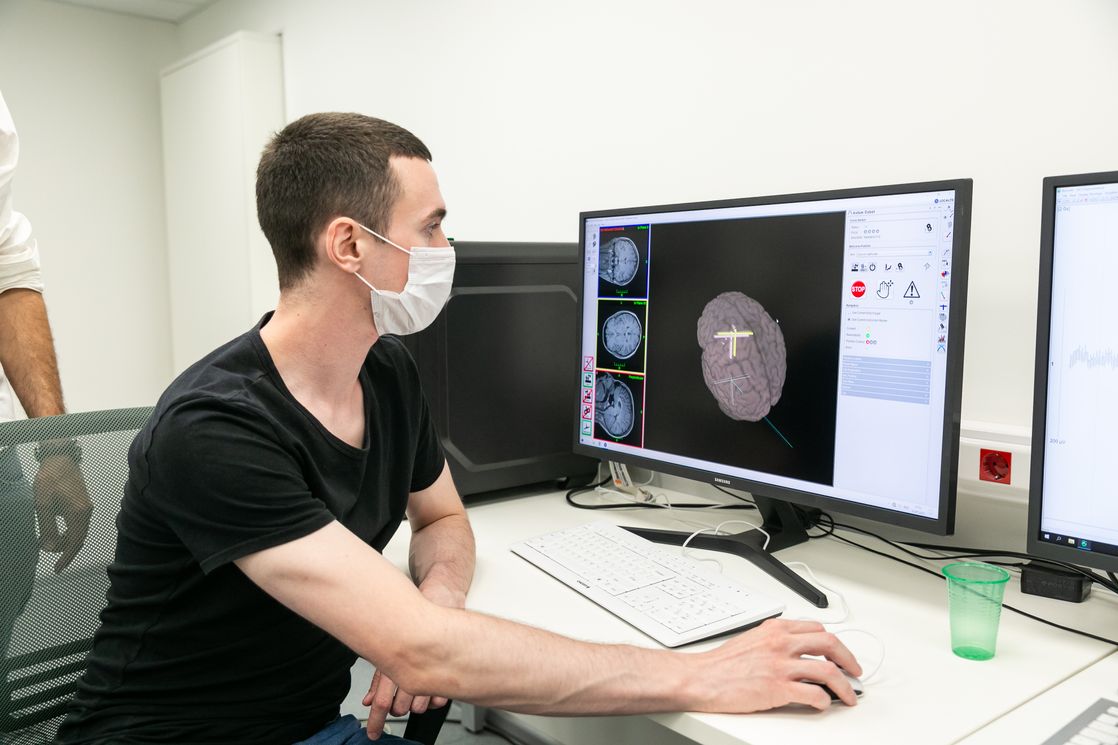
Neurotechnologies for the correction of speech disorders are being developed by CNM under the guidance of its Director Olga Dragoy. Computerised game tools for correcting children’s learning difficulties (in particular, reading) in the language sphere are also being advanced there.
Under the leadership of Alexey Ossadtchi, together with LIFT (a new centre for biomedical technologies), a unique new-generation non-contact encephalography technology using optical magnetometry is being developed.
Finally, within the project’s framework, technologies for the neuroprediction of market behaviour and neurocognitive technologies for optimising urban spaces are under development.
— What is the project's main peculiarity, its uniqueness?
— The focus on augmented intelligence as the antithesis of artificial intelligence: to put people first and technology second. This is very important, because in the world of new technologies, one should understand how the human intellect works and what the brain mechanisms are in order to create new technologies to improve the abilities of the brain and the human.
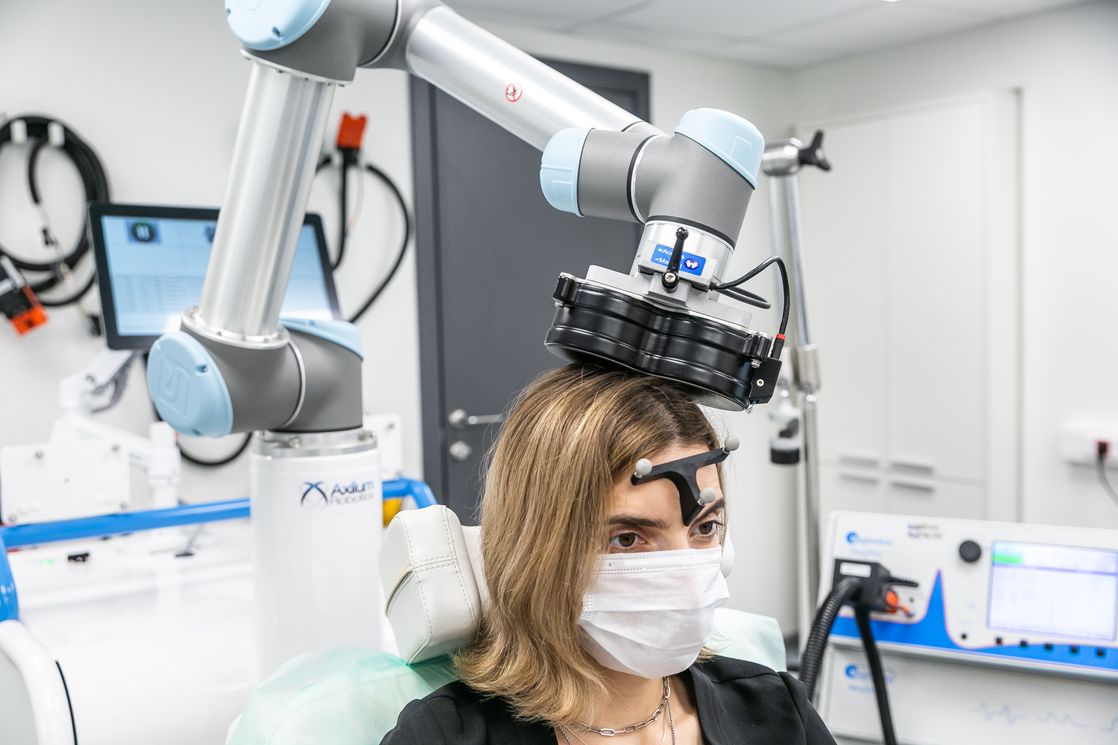
— What scientific works formed the basis of the proposed solutions?
— Our consortium is, first and foremost, a team of outstanding world-famous scientists who are able to captivate young people with scientific and applied problems at the forefront of science and neurotechnologies. ICH employees annually publish around 50 papers in leading international journals, including NeuroImage, Human Brain Mapping, Stroke, JNeuroisci, PNAS, PLOS Biology, and many others. HSE University employs outstanding specialists in the field of studying the neurocognitive mechanisms of human cognition, and each of them is a unique researcher in their field.
— What results are expected to be obtained after the project implementation and what has been done so far?
— The results include technologies for the development of programmes for correcting speech disorders, as well as applications and games for children. These are also tools for biomedicine: passive preoperative non-invasive mapping without stimulation for brain surgery, new neuroimaging technologies, next-generation encephalography, new neurostimulation protocols, and much more.
The project partners have accumulated impressive experience in the implementation of applied research. FCS scientists are the authors of mathematical methods that can be applied to the study of natural and augmented natural intelligence.
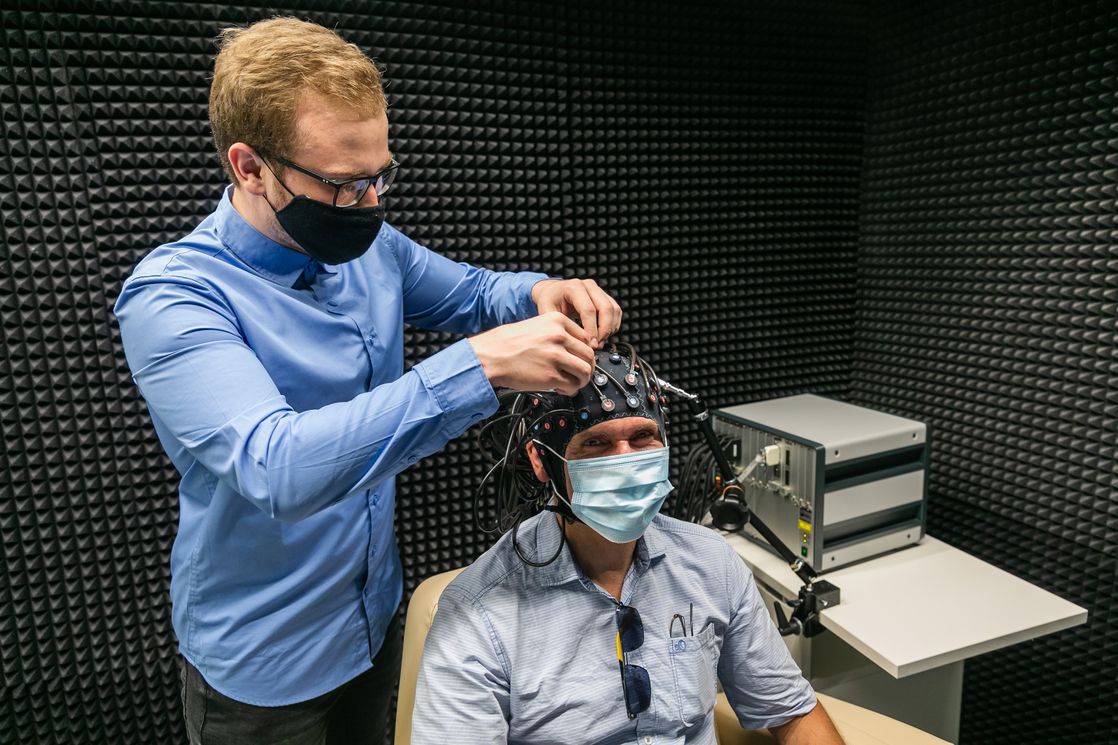
— How often is it possible to use scientific approaches in the solution of applied problems?
— Almost always, the transfer of research into technology is a global trend. However, it is important to note that not every fundamental result can be applied to the solution of specific problems, in our case, those related to the rehabilitation and diagnosis of various pathologies.
— Do you think it is possible to broadly use technology to enhance/strengthen the physical and cognitive abilities of a human in the near future?
— Thanks to the growth of computer technology and AI, the development and implementation of technologies such as neuro- and biofeedback and brain-computer interfaces have accelerated remarkably and are already being used in medicine and education.
Neurofeedback technology (NFB) is a neuromodulation technology that allows a person to control the activity of their own brain. Within the framework of this approach, signals of brain activity are analysed in real time and parameters characterising brain activity are calculated, then information about it is presented to the user. The use of the NFB allows the user to learn self-regulation skills, including the conscious regulation of brain activity.

— Is it possible to apply your developments in the prevention and treatment of diseases and, possibly, the prevention of deviant behaviour?
— Most of our work is aimed at studying the mechanisms of decision-making, visual and auditory perception, their norm and pathology. For example, in Alzheimer’s disease, schizophrenia and autism, certain cognitive functions are impaired. If we know how the brain provides a particular function and how its implementation differs in pathology, we can diagnose disorders and even point out abnormalities in the brain with certain problems.
— What departments and research groups are involved in the project outside of HSE University?
— These are all medical universities, research medical institutions; they are all tied to the development of biomedical technologies.
— How will the project contribute to the development of the university?
— One can call it a new direction in the natural sciences. It is a project with an emphasis on the natural sciences. We are entering the biomedical research market, and this is important for the reputation of HSE University as a multidisciplinary university.
The project has several tasks, including the creation of unique educational tracks. The key educational initiative is the Master’s programme ‘Cognitive Sciences and Technologies: From Neuron to Cognition’, which is very popular among HSE University applicants. For the second year, the new Bachelor’s programme ‘Cognitive Neurobiology’ on the basis of the Faculty of Biology and Biotechnology (supervised by Olga Martynova) is welcoming new applicants.
Thanks to the effort of ICN, a new cross-disciplinary graduate school in cognitive science has emerged.
We have become trendsetters in creating new areas of education, for example, the cross-cutting track ‘bachelor’s degree —master’s degree—postgraduate studies.’
The annual school on active and passive methods of neuromapping led by Matteo Feurra and Evgeny Blagoveshchensky is also enjoying great success.
See also:
Cognitive Reappraisal of Negative Emotions Can Help Manage Stress
Researchers at the HSE International Laboratory of Social Neurobiology assessed the effectiveness of two strategies for regulating emotions: reappraisal and suppression. Having analysed data on the electrical activity of 60 individuals’ brains, the scientists discovered that both approaches put additional strain on the nervous system. It was also found that individuals who are prone to emotional contagion tend to be more effective in using reappraisal and managing negative emotions. The paper has been published in Experimental Brain Research.
Russian Researchers Unveil Mechanism Underlying Language Processing Disruptions in Epilepsy Patients
Researchers at HSE University and the Pirogov National Medical and Surgical Centre have examined alterations induced by epilepsy in the language-related neural network within the brain. Using graph-based analysis, the researchers studied fMRI data from 28 patients and found that in epilepsy, both hemispheres of the brain become activated during language processing and short connections form between the hemispheres, while long connections within one hemisphere are disrupted. The study has been published in Epilepsy&Behavior.
HSE University and National Academy of Sciences of Kazakhstan Agree on Cooperation
In early February, HSE University's campus on Pokrovsky Bulvar hosted a meeting between HSE Vice Rector Victoria Panova and Abay Serikkanov, Vice President of the National Academy of Sciences of the Republic of Kazakhstan. The parties explored potential areas of cooperation and concluded the meeting by signing a memorandum of intent.
HSE University among Top Universities in Digital Economy
HSE University took second place in the new 2023 ranking of universities in the digital economy in Moscow and St Petersburg, having lost only to Bauman Moscow State Technical University. HSE University outperformed specialised IT universities such as Moscow Institute of Physics and Technology (third place) and ITMO University (fifth place), as well as Moscow State University (fourth place).
HSE Creates ‘Transfer of Neurocognitive Technologies’ Consortium
HSE, the Pirogov National Medical and Surgical Centre, and the Centre for Speech Pathology and Neurorehabilitation of the Moscow Healthcare Department have signed an agreement on cooperation and the creation of a ‘neuro-consortium’ under the name ‘Transfer of Neurocognitive Technologies’. The new body will boost the development and implementation of advanced solutions in neurotechnology aimed at maintaining and improving people's health. The agreement was signed for five years, and the consortium is open to new participants.
‘Our Beloved University Continues to Stride Forward with Unwavering Confidence’
HSE Rector Nikita Anisimov has congratulated university students, teachers, and staff on the upcoming New Year. ‘May each and every one of you spend these festive days in a heartwarming atmosphere, rejuvenating and reuniting with your families. I hope that the upcoming 2024 is filled with positive events in your lives, studies, and careers,’ he said.
‘University Life in Partnership with Artificial Intelligence’
HSE University is one of the leaders in IT education and research in the field of artificial intelligence (AI). Thanks to this, the university recently received the highest grant of the Priority 2030 programme. The integration of AI technologies into education is set to become a strategic direction for the university’s development over the next five years. What changes are coming to HSE University in this regard and how they will affect students and teachers? These issues were discussed at a meeting of HSE University’s Academic Council on December 20.
'While it May Sound Futuristic, It Holds Great Promise': Olga Dragoy Shares Her Thoughts on Language Function Restoration and the Future of Neurotechnology
In the spring of 2023, the fifth strategic project of the Priority 2030 programme, 'Human Brain Resilience: Neurocognitive Technologies for Adaptation, Learning, Development and Rehabilitation in a Changing Environment,' was launched at HSE University. The strategic project brings together researchers from all campuses of HSE University. In her interview with the HSE News Service, Olga Dragoy, head of the strategic project and Director of the HSE Centre for Language and Brain, shares an overview of the advanced technologies neuroscientists are creating today, the underlying inspiration driving these efforts, and the operational dynamics of interdisciplinary applied projects.
HSE University Receives Highest Grant under Priority 2030 Programme
HSE University has proved its leading position in the first group of the ‘Research Leadership’ field under the Priority 2030 programme. The university has also received the highest grant for teaching digital competencies to students, demonstrating its educational leadership in the fields of digital technologies and AI.
HSE Launches English-Language Strategic Development Website
The new website makes information on the university’s strategic development initiatives and opportunities available to international colleagues and partners. The Strategic Development Programme Office has launched anEnglish-language website to promote the implementation of HSE University’s integrated development programme. The website is an ‘entry point’ for international partners and students, informing them about the university’s strategic priorities, goals, and plans.


